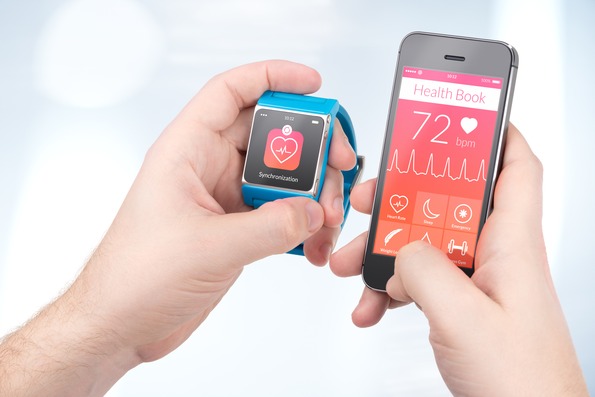Imagine a doctor writing you the wrong prescription, mixing up and losing your medical files, or just walking out in the middle of your visit. This obviously isn’t someone you would trust with your health – the same rings true for MedTech applications.
Would you trust your health to a buggy application that crashes all the time? When it comes to health issues, everyone wants the best care available which means having a good doctor when you go in for a check-up and having good developers behind the MedTech apps users are downloading to diagnose a child’s vision problems or to track and regulate blood pressure.

MedTech apps need to be both reliable and high performace. Contact us today to be set up with an Agile dedicated team.
Creating Apps & Real World Solutions
MedTed applications have evolved to become so much more than a phone notification reminding us to take our daily allergy pills. High-tech applications and IoT devices on the market now exist that allow users to virtually carry a full set of diagnostic tools with them anywhere they go. One interesting example is an app by Visiomed called BewellConnect. It connects all of Visiomed’s IoT devices including an oximeter, contactless thermometer, glucose meter, scale and more. BewellConnect users can use these tools to gather and track their own medical data to then share with their doctor.
With the plethora of medical applications being released it’s easy to get lost in the shuffle and download a flop. Keep in mind that all the successful platforms all have one thing in common – the collaboration of medical professionals with expert IT developers. Medical professionals know what functionalities are necessary for patients and doctors while skilled developers know the best way to integrate these functionalities into reliable mobile apps or IoT devices.
Pain Points
Let a doctor alleviate the pain points in your back and find developers to sooth those related to MedTech product development. These pain points are related to reliability, quality, and regulations. Quality and reliability are important for every project and a product that really sells will excel in both these respects.
This rings doubly true for MedTech apps, where glitches can have consequences on a user’s health.
In addition to this, MedTech apps that do not adhere to the strictest quality guidelines will not get through FDA regulations in the US or achieve the ISO 13485 certification in Europe. Passing regulations are necessary if you want your product to even reach the market.
One final pain point to be taken into account with user data from EU residents is related to the GDPR. Medtech applications and devices manage a wealth of personal data and some send this data to doctors as part of their function. With a multitude of sensitive information being dealt with extra care must be taken on processes that revolve around its security.
Agile MedTech
Agile methodologies are compatible with startups and IT development in general and are also very applicable to MedTech projects. One of the cornerstones of Agile Methodologies is quick and regular product releases. In general this allows the client and/or users to test the product and deliver valuable feedback to the developers as they work on updates and upgrades of the same application.
This can be considered especially useful for creating reliability and quality in MedTech apps. It’s safe to assume most IT developers don’t have an MD which means they don’t understand the full scope of all the medical ideas behind the application they are a part of. The opposite is also easy to assume – most MDs are not also senior IT developers so they probably don’t fully understand the tech decisions that need to be made to implement their ideas.
Frequent releases allow medical professionals involved in the project to see if their ideas are being implemented correctly and can provide feedback. Developers can then discuss how to best structure the code they are writing to compliment the medical functionalities that need to be tweaked as they continue with further project sprints.
Full-Stack MedTech Development
When it comes to healthcare, communication is critical. And the same is true for medical technology. Before a MedTech project begins, steering committee meetings that involve medical professionals and the IT project director will help the team understand the goals of the project. Afterwards, frequent releases and team meetings help ensure that the final product is successful.
And, not just successful – perfect. A normal app can malfunction and be an annoyance to the user. If a MedTech app malfunctions what’s at stake is someone’s health. Even after an application is finished it still needs to be hosted and maintained to ensure it is always functional and up to date.
Test driven development is another way of focusing on results and making sure everything is 100% reliable. Creating MedTech apps is a science and strict procedures need to be followed to guarantee proper functionality. Working with a dedicated team makes it easier to follow and implement such procedures. This will not just help create quality and reliability but will maximize your ability to adhere to FDA and ISO 13485 regulations.
Teaming up with a full-stack dedicated IT service provider is the perfect choice for mobile MedTech projects. Good full-stack teams will participate in project planning before the project is launched, perform product development, and then maintain the product after its release. They are involved throughout the entire product life-cycle and will perform testing throughout the entire process. A full-stack team will not just understand your goals but share them, ensuring that your product and your end-users are getting the attention they need.


 (5 votes, average: 4.00 out of 5)
(5 votes, average: 4.00 out of 5)






